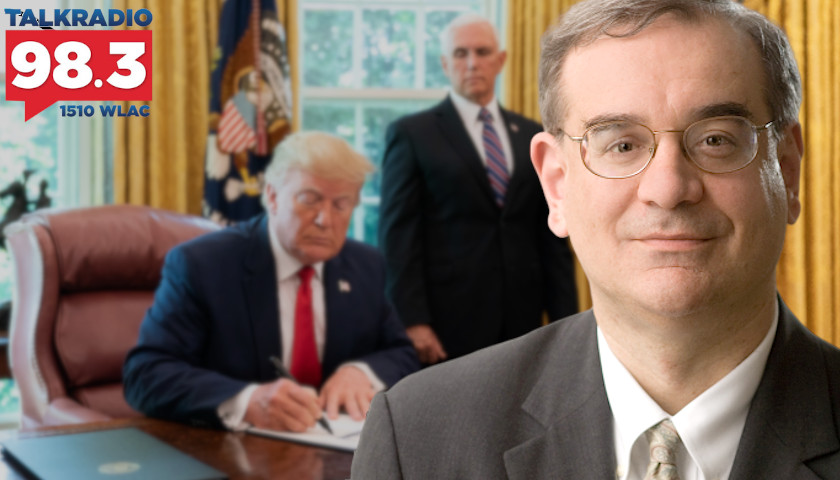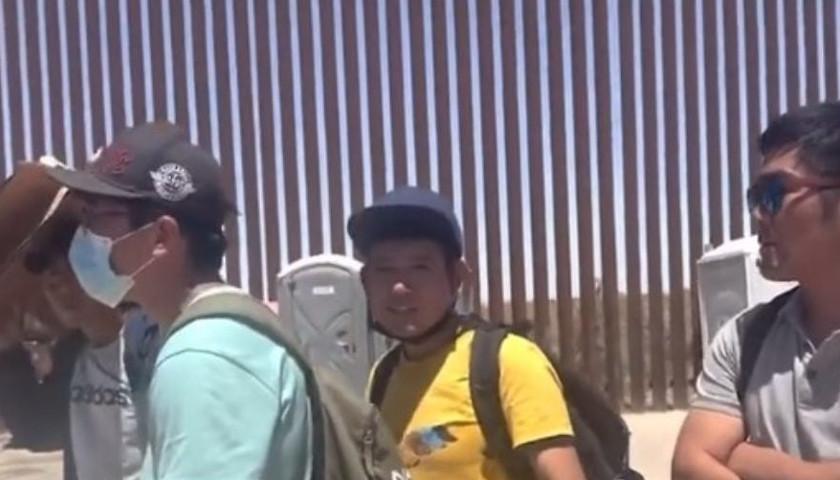During a specific discussion Friday morning on The Tennessee Star Report with Michael Patrick Leahy – broadcast on Nashville’s Talk Radio 98.3 and 1510 WLAC weekdays from 5:00 a.m. to 8:00 a.m.– Leahy welcomed Executive Director of the Center for Immigration Studies Mark Krikorian.
Towards the end of the second hour, Krikorian detailed Trump’s executive order maintaining that both state and local governments must be in compliance with the approval to bring in refugees. He continued by bringing into question that it was unclear who represented the local governmental body. Leahy and Krikorian both agreed that county commissioners did have the legal right to contest refugees in their counties.
Leahy: We are joined now by our good friend and one of the hardest working men in the country, Mark Krikorian, executive director for the Center for Immigration Studies. Mark welcome to the program.
Krikorian: Good morning.
Leahy: So you are one of the hardest working men in the country on this issue because late last night we said, “Hey, can you join us?” Boom you were up and you’re here to talk about. We need some help understanding this Executive Order 13888 signed by the president that allowed state and local governments to say whether or not they wanted to receive refugees.
Yesterday, as you know, Governor Bill Lee said, oh yeah. Bring them on in here to Tennessee. The Tennessee General Assembly, of course, has a lawsuit going on. They were not happy. How did this all come about? Give us the background on it.
Krikorian: Well, it predates President Trump’s administration. Remember there was a big push to bring in a large number of Syrians. And a lot of states starting pushing back. And even before that the resentment had been building. The federal government, when they set up this refugee resettlement.
They pledged to cover the costs that would be created for states because refugees have very high rates of welfare use. And the states bare a lot of that cost. And so so the feds. Again, back in 1980, no sweat. We’re going to make you whole. Well, make sure because this is a federal decision to bring these people here.
We will cover any expenses that you guys incur based on this. Well, as you can imagine, as the years went on, the amount of reimbursements starting going down and down and down. And now the states are stuck holding the bag. And so when the Obama Administration suggested importing lots of Syrians, that was kind of the straw that broke the camel’s back.
A lot of people and states all over said this is ridiculous. Enough is enough. They had no authority to say to the federal government no thanks. We don’t want any refugees to be resettled here. So the Trump administration issued an executive order that would allow the State Department to resettle people when on both the local government, city or county or whoever is responsible and the state consent in writing.
To send it into the State Department in writing saying we’re ok with this. And so that was a real step forward. The problem is, the Tennessee lawsuit if Tennessee were to win would set in basically, lock it in that states could not be forced to take refugees. The executive order is good as far as it goes. But what happens when President Bernie Sanders takes over?
Leahy: Exactly. So here’s the thing you said something important. The executive order as I understand it says both state and local governments must in writing say they’d do it. I guess the way the interpretation works when they say state government, here the Tennessee General Assembly opposes the resettlement of refugees because of the cost issue.
But the governor without talking to Tennessee General Assembly, I think he was talking to all these “non-profits” that are making money off the deal. He sends a letter saying, come on in! Is there any recourse for the general assembly to say we don’t agree with the governor and that would stop it at the state level and we’ll get to the local in a bit?
Krikorian: Yeah. That’s a good question. Because it’s not clear. The executive order does not make it clear who speaks for the state.
Leahy: That was my question.
Krikorian: I think by default it ends up being the governor because he’s the chief magistrate, the chief executive officer of the state. And so it’s kind of up to the legislature in any state to crack the whip if they disagree with their governor’s decision. It really does set up a political fight.
Not just in Tennessee but in a lot of other places potentially. Even with the Republican governors like Arizona. The Republican governor there said, sure, sure, no problem. The interesting twist though is that it weakens the likelihood that legislatures will push back is that the numbers of refugees are now pretty low.
Because the administration is refocusing its refugee assistance on helping more people with the same money abroad rather than just picking a handful of them out to make ourselves feel better and bringing them here.
Leahy: Except, if a governor says, hey come on in. Even though the overall numbers down. Wouldn’t that make the state of Tennessee a magnet for the lower numbers? Last year there were 650 refugees here in Tennessee and now Governor Lee puts a welcome mat out. Will that increase the number that comes here in Tennessee?
Krikorian: It could. It depends on how many states and localities agree to take them. A lot of the Democrat states are saying “sure we’ll take them.” So my point here is that it almost lulls some of the states into thinking it’s an easy way to satisfy these pressure groups by saying sure we’ll take refugees because there aren’t that many coming.
Even if other states say no. The real issue as always is what happens when a Democrat becomes president? Or even somebody like Jeb. In other words, somebody who’s going to ramp up refugees. Because I guarantee you, the next Democratic president is going to use refugee resettlement almost as a tool of revenge.
Krikorian: I mean they’re going to increase it to 2,000 or 3,000 a year.
Leahy: But local governments can push back? The county commissioner can say we don’t want them right?
Krikorian: They can indeed. And some places have and some places haven’t. That’s why it’s important to make sure the state and the actual locality of where they’re going to know what’s going on.
Listen to the second hour:
– – –
Tune in weekdays from 5:00 – 8:00 am to the Tennessee Star Report with Michael Patrick Leahy on Talk Radio 98.3 FM WLAC 1510. Listen online at iHeart Radio.
Photo “Mark Krikorian” by the Center of Immigration Studies.





